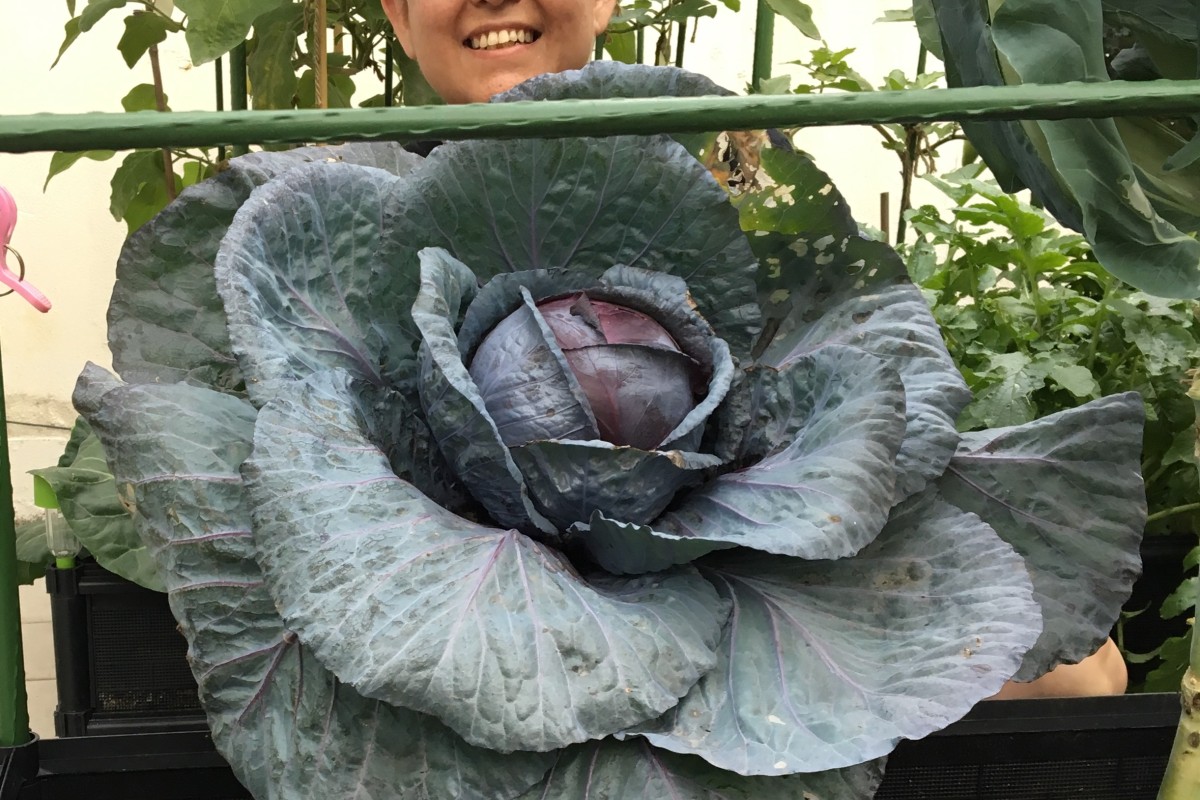
This story was part of Elephant Community Press' 2017 exhibition, "Hong Kong Farm to Table: Stories of Local Food Producers".
The district of Chai Wan is packed with industrial and residential blocks, the paint on their walls already worn out ages ago, leaving only black and rusty traces that appear after every scour of rainwater. The noise and exhaust fumes produced by the factories, construction work and delivery trucks make it a place that few people go to unless they work there.
But, above the concrete jungle, up on the roof of a 15-floor industrial building in Chai Wan is 1,500 square feet with rows and rows of lush veggies and juicy fruits growing in plastic planters. Anne Gomez is there, squatting down on a plastic stool, washing farming tools swiftly. Shorthaired and muscular, beads of sweat have soaked her T-shirt, but she has a big smile on her face.
Gomez was first a City Farm customer but is now a staff member who runs the farm operation in Chai Wan. Founded in 2010 by a husband and wife team, City Farm started out by organising classes on farming techniques and now owns three industrial rooftop farms in Chai Wan, Tsuen Wan and Kwun Tong where they rent farming plots to the public.
People can come around freely, at any time from 7am-pm, seven days a week. Beginners will first learn to grow veggies like lettuce, ginger and tomatoes, as a foundation, while more advanced farmers will grow more challenging crops like sweet potatoes, carrots and other root vegetables.
Gomez has devoted herself to farming since she took her first course there five years ago. Attracted by the nice and quiet environment on rooftop, “I thought it was also fascinating that you can grow your own food, starting with something simple like vegetables. It is amazing when you grab something to eat within a month or so,” she says, her grin stretching from one rosy cheek to another.
Gomez originally treated farming as a kind of stress relief. When she is farming, she can totally ignore the surroundings and concentrate. “Gradually, the clutter in my head is pushed out,” she says. As her interest in farming deepened, eager to learn more, she started to work at City Farm and now helps customers with irrigation and taking care of their farms.
After the food scandals everywhere in the world, she values and appreciates her organic food more: “When I am eating my own food and comparing it to those I bought from supermarkets, the texture, the flavours, they are all different, way more delicious than we would expect,” Gomez said. She says most urbanites would not be able to taste the freshest, sweetest flavours unless they try to grow produce by themselves.
“Hong Kong can be focused more on its own food production. If it can supply a greater percentage of local food, then we can rely less on importing, in return creating better price and quality food here,” she says. It will be a long journey to fulfil the ideal farm to table concept, but she does believe that the government should further promote and subsidise all kinds of farming activities in Hong Kong. She wonders, gesturing to other rooftops nearby, if one day they will be able to be developed into farms as well.
As Anne Gomez stands in her green oasis, she explains that her passion for farming will never change. “There will always be new discoveries and learning. Watching the crops grow bit by bit every day makes me feel vibrant and fascinated.” She hopes to share this experience of farming with other Hong Kong citizens as well.
